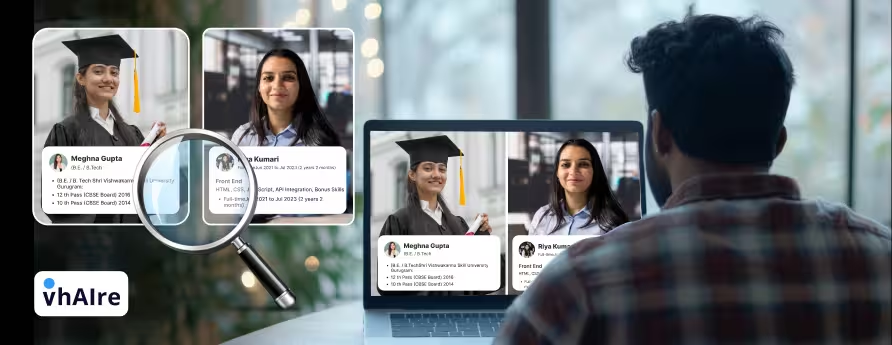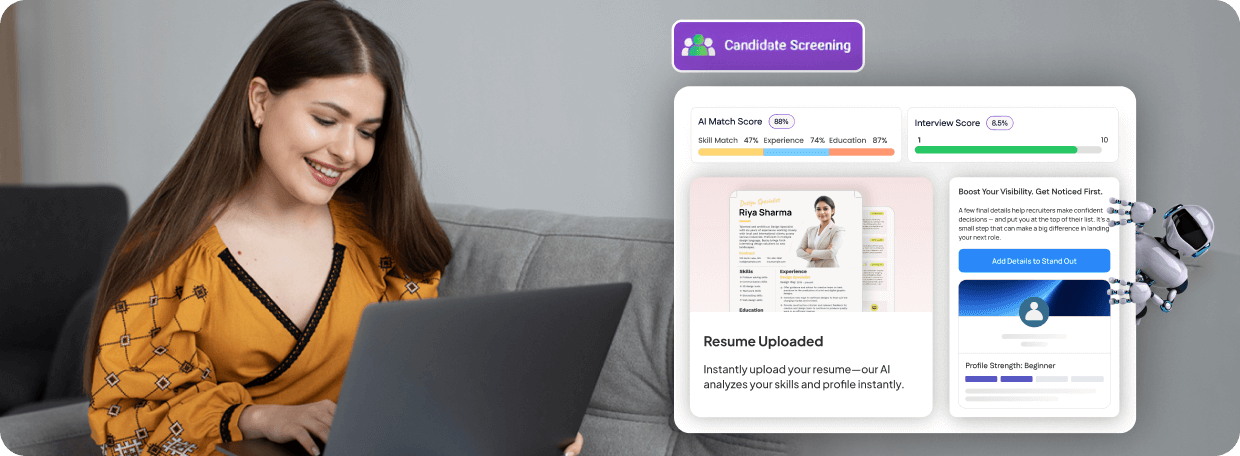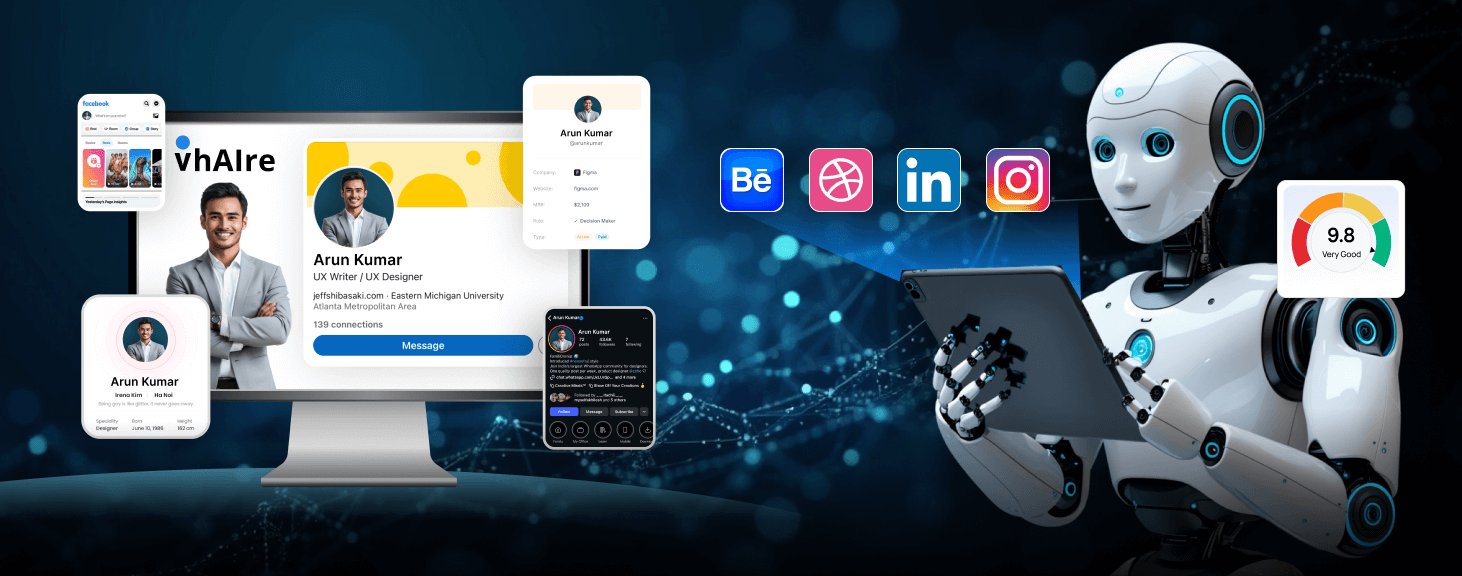The Power of Continuous Learning: How Small Certifications Can Make a Big Impact


Introduction
In today’s job market, learning doesn’t end with a degree. Employers are increasingly looking for candidates who show they can keep pace with change and one of the best ways to prove that is through continuous learning.
The good news? You don’t need another four-year degree to impress recruiters. Small certifications and micro-credentials can make a big impact by showing adaptability, curiosity, and commitment to growth. In fact, these signals often make the difference between getting noticed or overlooked in an AI-driven hiring world.
Why Continuous Learning Matters
Work is evolving faster than ever. Roles that didn’t exist five years ago are now in high demand. AI, automation, and digital transformation mean skill requirements change quickly, sometimes overnight.
For employers, this creates a challenge: how do they know which candidates can thrive in this environment? The answer: they look for evidence of continuous learning.
- A certification in a new tool shows you can learn quickly.
- A short course in AI literacy shows you’re curious about the future.
- A portfolio project based on a course shows you can apply what you’ve learned.
Continuous learning is no longer optional—it’s part of your professional identity.
The Value of Small Certifications
Big degrees still matter, but small certifications carry outsized weight in today’s hiring process. Why?
- They Show Adaptability
Recruiters want candidates who can evolve with technology. A badge in data analytics, a certificate in project management, or an AI literacy credential signals that you’re not stuck, you’re growing.
- They Are Visible to AI Recruiters
Applicant Tracking Systems (ATS) and AI hiring platforms scan for certifications as hard signals of competence. Adding them to your LinkedIn or resume makes you more discoverable.
- They Fill Skill Gaps
Maybe you’re strong in marketing but need some exposure to data. A short data visualization course shows you’re bridging that gap.
- They Boost Confidence
Certifications aren’t just for recruiters, they help you feel more confident walking into interviews, knowing you’ve invested in yourself.
Types of Certifications That Make a Difference
You don’t need to overload your resume with badges—but choosing the right ones can give you an edge.
- AI & Digital Literacy
- Intro to AI (Coursera, LinkedIn Learning, Google AI Essentials).
- Responsible AI practices.
- Data Skills
- Excel, SQL, Google Analytics, Tableau.
- Data storytelling and visualization.
- Industry Tools
- Salesforce, HubSpot, Figma, Jira, Asana.
- Professional Growth
- Project Management (PMP or Agile micro-certs).
- Communication and leadership courses.
Pro Tip: Look for certifications from reputable platforms like Coursera, edX, LinkedIn Learning, or industry-specific providers.
How to Showcase Certifications Effectively
A certification only adds value if recruiters can see it. Here’s how to highlight them:
- On Your Resume
- Add a “Certifications” section under education or skills.
- Mention both the certificate and the issuing body.
- On LinkedIn
- Upload certifications under the “Licenses & Certifications” section.
- Display digital badges on your profile.
- Mention them in your headline if particularly relevant.
- In Applications
- Match certifications to the job description.
- Highlight certifications in your cover letter to show relevance.
- In Interviews
- Talk about what you learned and how you applied it, not just the badge itself.
How Recruiters Interpret Certifications
Recruiters don’t just see a badge—they see a story:
- Curiosity: You’re proactive about learning.
- Adaptability: You’re not afraid of change.
- Future Readiness: You’re preparing for the next wave of work.
In a world where AI sorts through candidates, certifications are more than lines on a resume—they’re signals that set you apart.
The Future of Continuous Learning
The rise of micro-credentials and stackable learning means candidates can now build skills on demand:
- Universities and companies are offering shorter, more targeted programs.
- Many certifications are flexible, online, and affordable.
- Employers increasingly recognize these as proof of real skills.
In the future, expect career paths to look less like a single long degree and more like a series of learning milestones you collect throughout your professional life.
Final Thought
In 2025, careers aren’t built on one big qualification—they’re built on a mindset of lifelong learning. Small certifications and micro-credentials may look minor, but together they tell a powerful story: that you’re adaptable, curious, and ready for the future.
Employers don’t just want candidates who can do the job today—they want candidates who will still thrive tomorrow. By investing in continuous learning, you prove you’re one of them.
Remember: a single certification won’t change your career—but the habit of learning continuously will.

Skills vs. Degrees: What Employers Are Really Looking For
For years, job seekers believed that earning a degree was the ultimate ticket to career success. A strong academic background was considered the baseline requirement for most jobs. But the hiring landscape has changed drastically. Today, employers are no longer evaluating candidates only based on what they studied—they’re focusing on what candidates can actually do.
Read More
From Application to Offer: How Candidates Can Take Control of Their Journey in 2025
Landing a job in 2025 looks very different than it did just a few years ago. Artificial Intelligence (AI), digital hiring platforms, and evolving workplace expectations are reshaping the candidate experience. But while the process may feel overwhelming, the truth is this: candidates have more control over their journey than ever before.
Read More
How AI Is Changing the Job Hunt—And How You Can Stay Ahead
Artificial Intelligence (AI) has revolutionized industries ranging from healthcare to finance—but one area where its impact is often underestimated is recruitment. For candidates, the hiring process now looks vastly different compared to even five years ago. From AI-driven resume screeners to predictive candidate matching and automated interview prep tools, AI is quietly shaping the job hunt at every stage.
Read More
Your Digital Footprint Matters: What AI Recruiters See Before Meeting You
In today’s hiring landscape, your resume isn’t the only thing recruiters see. Before they ever speak to you, Artificial Intelligence (AI) systems and the recruiters who rely on them are already scanning your digital footprint.
Read More